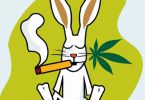Depression crushes. This leading cause of disability burdens more than 264 million people across the globe. It destroys functionality and leads to suicide. Sadly, healthcare providers must treat the condition with pharmaceutical guess and check that often fails.
In a 2015 study, Osório et al [1] clarify that conventional treatments have low therapeutic effectiveness, low response rates, adverse effects, and slow onset. This group of researchers from Brazil investigated ayahuasca with hope for a new generation of treatment that overcomes these limitations.
Indigenous peoples of the Amazon use ayahuasca for medicinal and spiritual purposes. They prepare the drink via decoction of two plant components: bark of Banisteriopsis caapi (a vine) and leaves of Psychotria viridis (a shrub). The two plants pack distinct active chemicals. B. caapi contains chemicals that act as monoamine oxidase A inhibitors, namely harmine, tetrahydroharmine (THH), and harmaline. Monoamine oxidase inhibitors are used for several pharmaceutical antidepressants. P. viridis provides N, N-dimethyltryptamine, or DMT.
Osório et al [1] mounted their open label trial, the first of its kind, with ayahuasca prepared by the Santo Daime religious community of the Amazon. Using gas chromatography/mass spectrometry, the researchers quantified 0.08 mg/mL DMT and 0.21 mg/mL harmine.
Six participants (four women) volunteered; all suffered current depressive episodes, and none were taking medications. On average, the level of depression was considered moderate. They spent two weeks in an inpatient psychiatric unit prior to drinking 2.2 ml/kg body weight, or 120-200 ml total. The experimental session lasted 4 hours, and the researchers administered several tests to gauge depression, anxiety, mania, and blood pressure.
At three hours, they noted a small but significant decrease in depression severity. After one day, this decrease became more pronounced; by day 7, depression severity had dropped 82% below baseline. Then, depression increased significantly at the two-week mark (still below baseline). And yet, it dropped again significantly at the three-week mark. The decreases were marked by alleviation of sadness, pessimistic thinking, suicidal ideations, and concentration troubles. The researchers explain that the fluctuations may relate to “complex intracellular events that remain active after the acute effects of [ayahuasca] have subsided.”
Anxiety remained lower compared to baseline throughout the experiment. At 2 hours and 20 minutes, it dropped significantly and stayed about 70% below baseline for a week. The volunteers reported no adverse effects other than vomiting (50%), which did not cause severe discomfort. Sensory perception and thought content remained fairly stable due to the relatively low levels of DMT (doses may extend up to 0.5 mg/mL). Blood pressure did not jump significantly.
Thus, in a single dose, ayahuasca significantly reduced depression in the short term and thereafter for three weeks. The 2015 trial inspired other scientists who have since widely confirmed the power of this traditional herbal drink to heal that deepest and darkest of afflictions. [2-5]
References
- Osório F de L, et al. Antidepressant effects of a single dose of ayahuasca in patients with recurrent depression: a preliminary report. Braz J Psychiatry. 2015;37(1):13-20. doi: 10.1590/1516-4446-2014-1496. [Impact Factor: 2.440; Times Cited: 210 (Semantic Scholar)]
- Palhano-Fontes F, et al. Rapid antidepressant effects of the psychedelic ayahuasca in treatment-resistant depression: A randomized placebo-controlled trial. Psychological Medicine.2019;49(4):655-663. doi:10.1017/S0033291718001356. [Impact Factor: 5.813; Times Cited: 129 (Semantic Scholar)]
- Sarris J, et al. Ayahuasca use and reported effects on depression and anxiety symptoms: An international cross-sectional study of 11,912 consumers. J Affect Disord Reports. 2021;4:100098. doi:https://doi.org/10.1016/j.jadr.2021.100098. [Impact Factor: 3.892; Times Cited: n/a]
- Galvão-Coelho NL, et al. Changes in inflammatory biomarkers are related to the antidepressant effects of Ayahuasca. Journal of Psychopharmacology. 2020;34(10):1125-1133. doi:10.1177/0269881120936486. [Impact Factor: 3.121; Times Cited: 6 (Semantic Scholar)]
- Jiménez-Garrido DF, et al. Effects of ayahuasca on mental health and quality of life in naïve users: A longitudinal and cross-sectional study combination. Sci Rep. 2020;10(4075). https://doi.org/10.1038/s41598-020-61169-x. [Impact Factor: 3.998; Times Cited: 9 (Semantic Scholar)]
Image: Preparation of ayahuasca in Ecuador; Terpsichore, CC BY-SA 3.0








